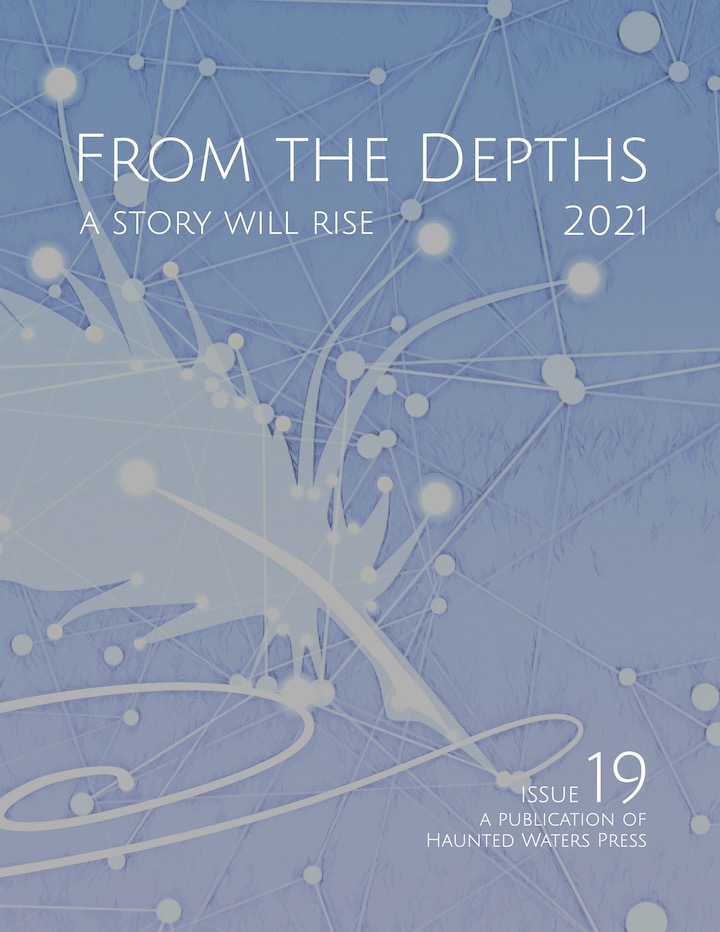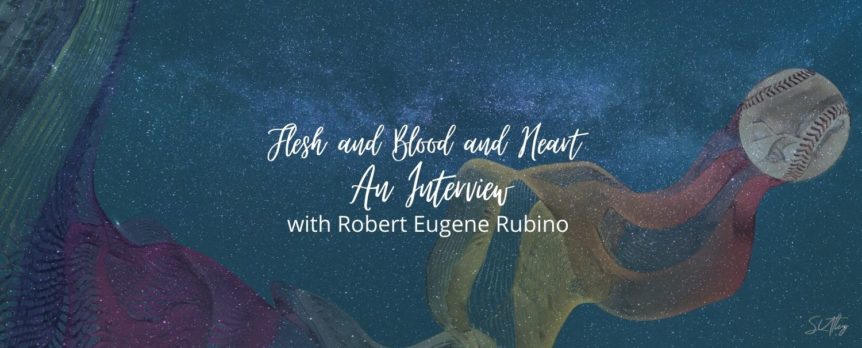An Interview with Robert Eugene Rubino
Thank you for joining us for another Haunted Waters Press Featured Author Interview. In this series, we sit down with contributors to chat about their craft and explore the experiences that have shaped their writing.
Today we are joined by HWP Contributor Robert Eugene Rubino. Robert's poem Microscopic Telescopic Split-Finger Fastball is featured in the 2021 issue of From the Depths. You can also find his poem Owl House in the pages of SPLASH! Enjoy!
A Tear and A Smile by Khalil Gibran. It was thrilling to read a poem in which the author so eloquently and economically made the case for embracing opposite emotions. Another poem that truly spoke to me and sparked my own interest in writing poetry was Pitcher by Robert Francis. A poem about baseball—how could I not like it? Of course, the more I re-read it, the more I realized it can be about much more than baseball.
How long did it take you to find your voice in your poetry? Do you look back on your early writing and see the ways in which you have grown as a writer?
In my career working on newspapers, I wrote thousands of journalistic-style essays, almost always on short deadlines. My major influences were Pauline Kael, the great film critic, and Wells Twombly, a prolific sports columnist who died at 41. From them, I saw the importance of developing a strong, well-informed voice possessed of sardonic playfulness, point of view, and linguistic vitality. Their sentences often came alive with jazzy rhythms. I just naively believed I could transfer those qualities to the writing of poetry. It seems to be working, at least enough times so that I stick with it. The growth as a writer comes with the luxury of no longer having to write on deadline. The growth has come with the pleasure and dedication of rewriting, rewriting, rewriting, and then rewriting further, of reading it back aloud, of polishing, working it out at open mics.
"The growth has come with the pleasure and dedication of rewriting, rewriting, rewriting, and then rewriting further, of reading it back aloud, of polishing, working it out at open mics."
—Robert Eugene Rubino
We’d love to know more about your process for writing poetry. Do you sit down to write on a schedule, or rush for a pen and paper when an idea strikes?
Usually, I write down ideas and make a few notes. Then I'll let the ideas percolate, sometimes for a day or two, sometimes much longer. Eventually, the percolation phase ends, and then I have no choice: I must begin the work of getting something—anything—on paper (or in the computer file). Those are the arduous parts of the process. Then the fun begins—rewriting, editing, more rewriting, etc.
Do you find your poetry driven more by truth or fiction? How much personal experience makes its way into your writing?
I like to think it's most frequently driven by skeletal truth through fictional landscapes and that when it arrives at its destination, it's truth that's no longer skeletal. It has acquired flesh and blood and heart . . . some muscle and maybe even blemishes, too. And maybe it's clothed, too, anything from rags to Sunday best. I have a writer friend who says if his fiction is any good, it'll all be true. I like that viewpoint.
What advice do you have for the self-conscious aspiring poet?
I can only pass along the advice my father gave me whenever I said something or behaved in such a way that he found disagreeable or unhelpful: Don't be like that.
Is there an under-the-radar poet you wish more people knew about?
Tony Aldarondo, who recently published his first book, Big Heart Poet. Full disclosure: Tony is a friend, and I'm listed as an editor of Big Heart Poet, although in reality, I served more like a sounding board and half of a two-person workshop. Tony is a phenomenal talent, and I highly recommend his book (from Humming Word Press).
When you’re not writing poetry, what might we find you doing?
Downward dog (love my daily yoga practice); staring into space (daydreaming is vastly underrated); and mid-afternoon naps (also known as Sacred Time); coastal hiking with my wife.
What are you reading right now?
Time Pieces by Mart Smith-Soto; any of Tony Hoagland's poetry collections. Looking forward to reading Joy Haro's recent memoir: Warrior Poet.
What words do you live by? Do you have a personal motto?
Don't tailgate while driving. Floss after every meal. Listen to the great jazz vibraphonists. Take a hike. Forgive.
If you could tell your younger writing self anything, what would it be?
Don't listen to me.


Lightning Round with Robert Eugene Rubino

ABOUT THE AUTHOR
Robert Eugene Rubino received a Pushcart Prize nomination in creative nonfiction for "Spinning Shame Into Nostalgia" (Hippocampus, November 2016). He has published prose and poetry in various online and print literary journals, including Elysian Fields Quarterly, The Esthetic Apostle, Raw Art Review, MacQueen's Quinterly, The Write Launch, Cathexis Northwest, High Shelf Press, Gravitas, Forbidden Peak Press, and Haunted Waters Press. He's old enough to remember the Cuban Missile Crisis and smart enough to solve the New York Times crossword puzzle on Mondays (other days not so much). He lives in Northern California.
Share this Post

